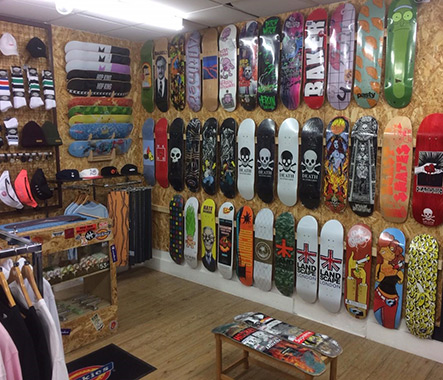
Creating Social Value from
How are retail landlords fulfilling their commitments to Community and Social Value?
The retail sector continues to evolve at pace as the impact of Covid-19 and the rise of online shopping changes the way consumers purchase goods and experience space. In some locations – particularly high streets - the oversupply of retail space could be as high as 40% over the coming decade (Savills Research 2019).
However, this space presents an opportunity to turbo-charge local economies, connect communities and generate social value. Indeed, disused retail space can be re-imagined and repurposed for the benefit of many.
At Landsec, our ambition is to deliver a positive impact wherever we operate; our commitment is to create £25m worth of social value by 2025 through our four social sustainability programmes:
Employment: Supporting people facing significant barriers with the skills and experience to find sustainable work.
Education: Inspiring young people from diverse socio-economic backgrounds to consider a career in our industry.
Charity partnerships: Working with our communities to address and raise awareness of important societal issues and deliver lasting change.
Volunteering: Empowering our people and partners to create a positive impact by using their skills and expertise.
What is social value?
Social value is the positive impact a business has on its local community through its actions. It includes social and economic factors and considers how these contribute to the long-term wellbeing and resilience of individuals and communities. Reporting our social value means we can quantify the difference we are making in financial and non-financial terms, applying values to the outputs of our activities. This gives us insights into where our work has the greatest impact and has enabled us to identify the value of focusing on engaging with more excluded groups in our society; including young people, individuals experiencing homelessness and people leaving prison.
Creating social value enables us to contribute to stronger and more resilient local communities where we operate as a business. It also ensures we can address significant skills gaps in our industry by creating opportunities for those who need them most, attract and retain purpose-driven employees to our business, and collaborate with our customers and partners to embed positive impact throughout our supply chain.


How we deliver it
One way we create value for our communities is opening up our retail spaces for local charities to raise awareness, address key social issues and deliver their programmes for people facing barriers.
One of our charity partners, Circle Collective, is based in a pro-bono shop at Lewisham Shopping Centre, working to deliver employability support for local young people. Circle Collective has a unique approach of job coaching, training and work experience in their retail store, helping unemployed young people into sustainable work. By having a presence in our shopping centre, Circle Collective can engage more young people facing barriers and embed their work further into the local community in Lewisham.
Also at Lewisham, we have made space available to the Migration Museum. Formerly based in Lambeth, the museum celebrates the contribution of migrants from around the world to the UK, and has an active education and community programme.
At West 12 Shopping Centre, in Shepherd’s Bush, our local partner Petit Miracles Hub has two pro bono retail units. This provides space for local creative entrepreneurs to showcase their products and develop business skills.
We also use our advertising spaces to promote the work of charity partners to our customers, across our UK portfolio. One example is the world-famous Piccadilly Lights in London which, during Covid-19, took on an important role to raise awareness and funds for charities.
A future focused on the community
One of the main challenges facing the property industry, and the communities it serves, is how to reduce the amount of empty space in town centres. There are many points of discussion on how this could be achieved but one thing is immediately clear: collaboration with communities will be key.
The success in reinventing and reimagining retail space to be resilient and fit for purpose lies in creating mixed-use destinations that meet community needs and aspirations. As developers, owners, and managers of real estate across the UK, the best way for our industry to conduct our work is to talk with and listen to the vibrant communities we are part of.


